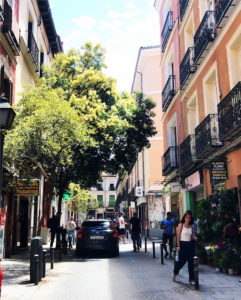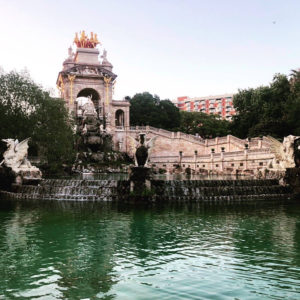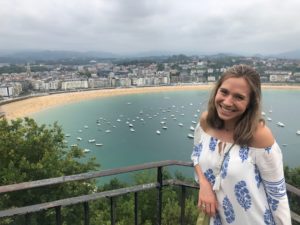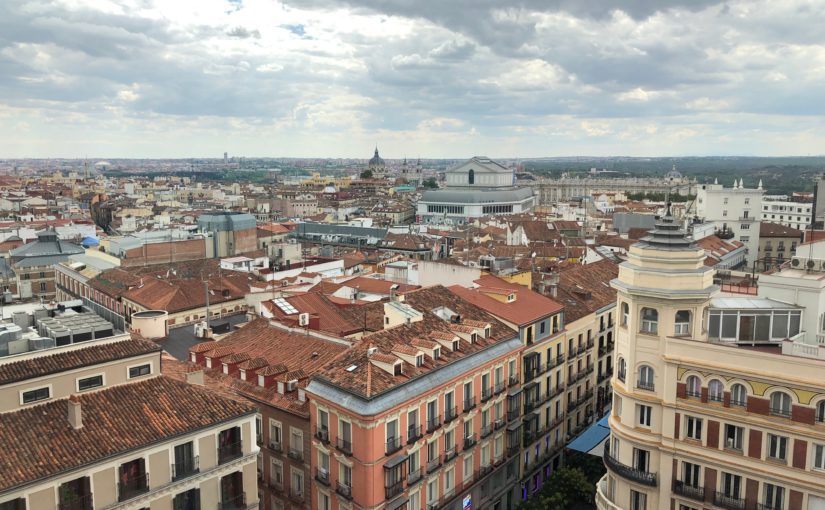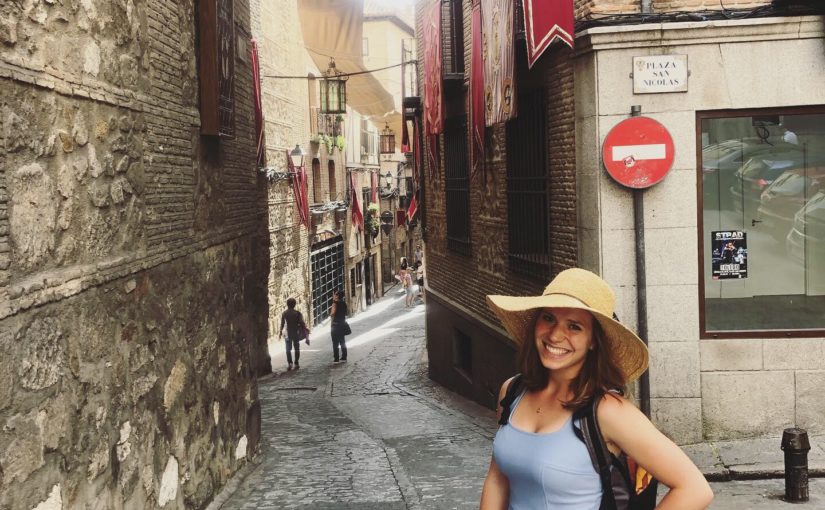The greatest advancement I gained in my language skills in my time in Madrid was an increase in comfort with the language. My confidence in Spanish was actually very high as I boarded the plane headed to Europe, but plummeted once I landed. I realized that even though I could write a ten page essay on Spanish poetry and film, I had no idea how to respond to the cashier at the grocery store when asked “¿Quieres bolsa?”. Through accumulating daily interactions with people on subways, asking for directions, complimenting outfits, and speaking in class, I was able to finally accumulate enough off-the-cuff conversation to finally consider myself “colloquial”. I am also surprised at how much peninsular “lingo” I gained during my time in Spain… I am constantly saying phrases only utilized in Spain, such as “tranquila”, “no pasa nada” and “¿Que tal, chica?”. I am looking forward to learning more subtle differences between regions in Latin America as I pursue my goal of working in American international aid to Latin American countries.
The SLA gave me the gift of independence for the first time. Though I technically live “by myself” in college, I am still in a strong and structured community of track practice, dorm events, and dining halls. In Madrid, I was truly by myself for the first time. Knowing that I can not only operate on my own, but do it in a foreign country, gives me a new sense of agency that helps me to hold my head higher today.
Culturally, I have been made aware for the first time of the extreme depth of variation between cultures, customs, and ways of the world. Whereas before my experience in the SLA, I thought that culture stopped at religion, politics, and language, I now realize that it extends into how the waiter gives you your check, how to locate a street sign, and whether or not to greet someone on a metro or a street corner. I am thankful to acknowledge early on that there is so much, in fact, that I do NOT know. As I pursue a career abroad, this humility will ensure that I listen more than I suggest as I aim to be a voice for the underrepresented.
To someone pursuing an SLA program in the summer of 2020, I would suggest to find a program that is well reviewed by students. My study program in Madrid was definitely unorganized, and that made it difficult for credits to transfer and for my classes to be scheduled accordingly. I would also suggest staying somewhere where you feel free and safe to travel, since some of the highlights of my summer lay in weekend trips across the country to get to know the region more as a whole instead of just one city. Be fearless in what you pursue, but do so with awareness and new friends by your side!